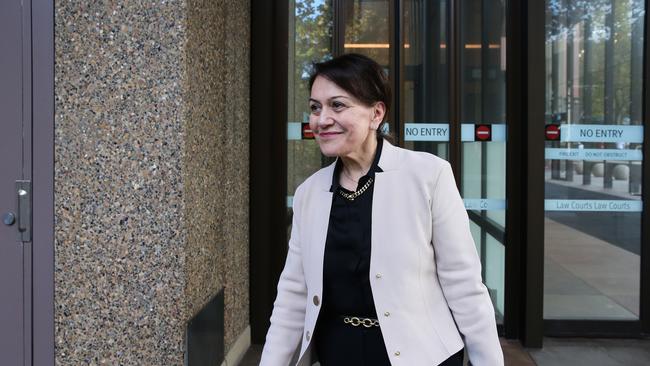Oil Search claims Ayten Saridas’ opinion does not fall under whistleblowing provisions
The oil company which merged with Santos in 2021 has claimed that opinions held by a former executive are not fact and did not need to reported to the ASX.

Oil Search has said an opinion held by an executive does not need to be disclosed to the ASX if the company disagrees, as it rejected allegations former executive Ayten Saridas made against the company about bullying, and said it should not fall under whistleblowing provisions.
In the third day of evidence in the NSW Supreme Court, Oil Search’s legal counsel also presented a report compiled by Rothschild which it said showed it had $US1.08bn in liquidity available after the wealth management group decided $US400m not previously counted could be considered liquidity.
Ms Saridas’s legal action against Oil Search (which merged with Santos in 2021) alleges that former managing director Keiran Wulff and outgoing chief financial officer Stephen Gardiner harassed her, and that harassment eventually forced her resignation.
Jeremy Clarke SC, the barrister representing Oil Search, told the court that “opinion are opinions and not facts” and that the company had nothing to disclose if it disagreed with such a view.
“Just because one senior forms an opinion about the way in which facility agreements operate and whether or not they should be counted as available liquidity, that is not a disclosure, a whistleblower disclosure of a breach of the continuous disclosure laws, because at that stage the company doesn’t have anything to disclose,” he said.
Mr Clarke said in this instance that the opinion of Ms Saridas had not reached the point of being a breach of the continuous disclosure laws.
Ms Saridas officially joined Oil Search as chief financial officer-designate in August 2020, and signed a contract that designated her as incoming chief financial officer by February 2021 upon Mr Gardiner’s departure.
But Ms Saridas said Dr Wulff and Mr Gardiner quickly moved to undermine her, when she tried to raise concerns about disclosures by overstating its available debt funding and how advanced it was in refinancing discussions with lenders.
Ms Saridas told the pair in 2020 the company should have made two disclosures to the market, but they ignored her, the court was told.
These were that a $US600m corporate facility continued to be included in available liquidity, when $US400m of that was tied up. And “no distributions” would come from the company’s Papua New Guinea assets in the next 18 months from late 2020.
Mr Clarke told the court that a report by wealth management group Rothschild showed that Oil Search had a total liquidity of $US1.08bn at the time that the report was published in December 2020.
He said that an earlier version of the report in October 2020 said that $US400m needed to be taken off the available liquidity, which still would have meant the company had $US690m available, excluding restricted cash.
“Oh, it agrees with Ms Saridas,” NSW Supreme Court judge Monika Schmidt injected.
“It does at this stage,” Mr Clarke said.
Mr Clarke said Rothschild ultimately took the view that the minimum, the total available liquidity as of November 21, 2020 included all of the amounts.
The case continues.



